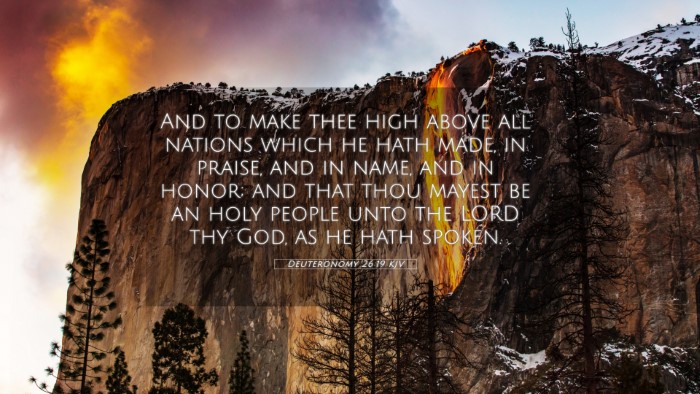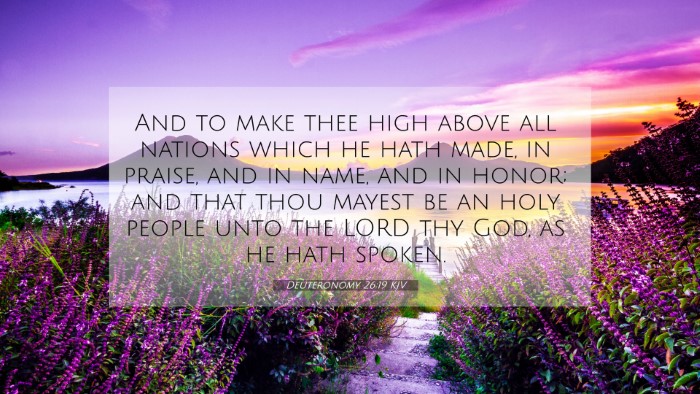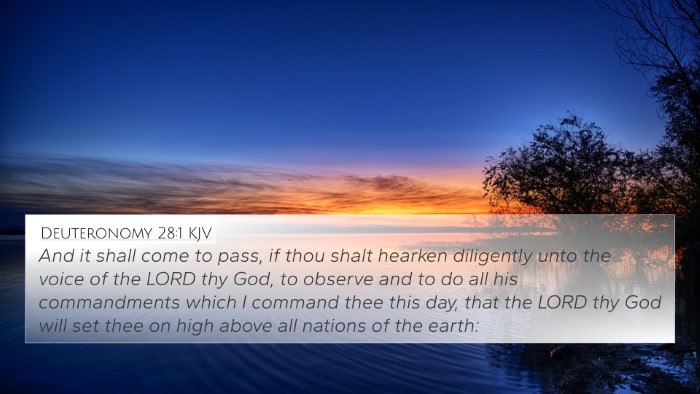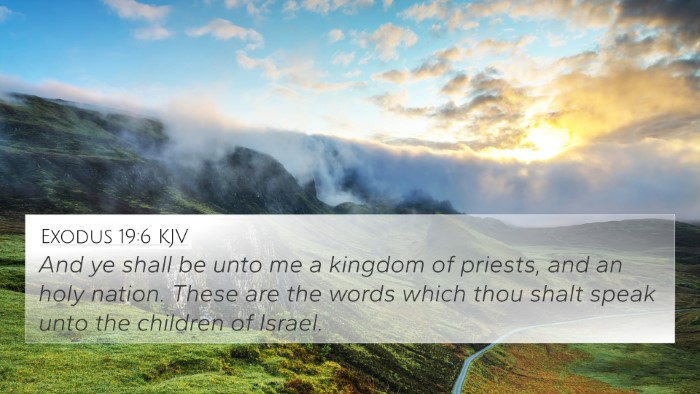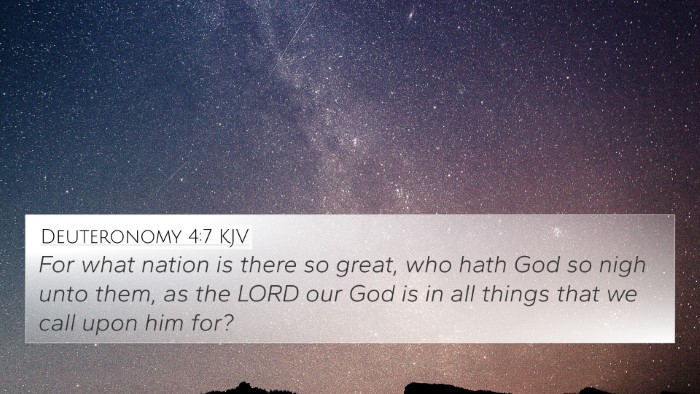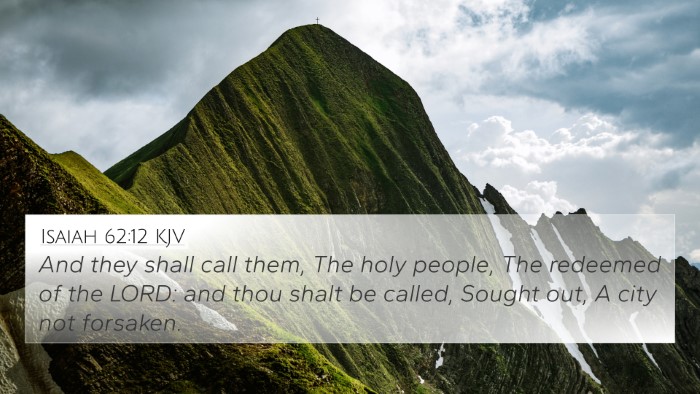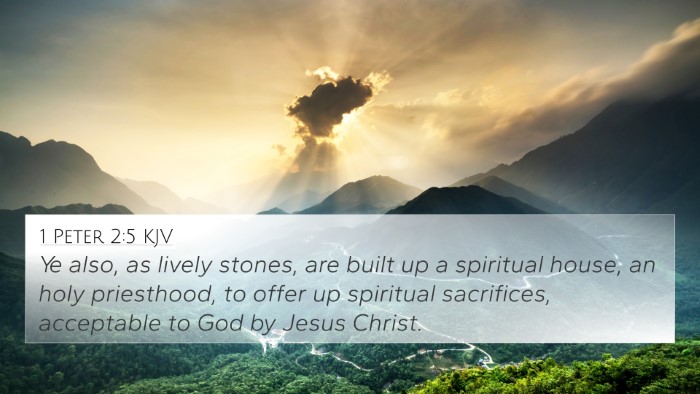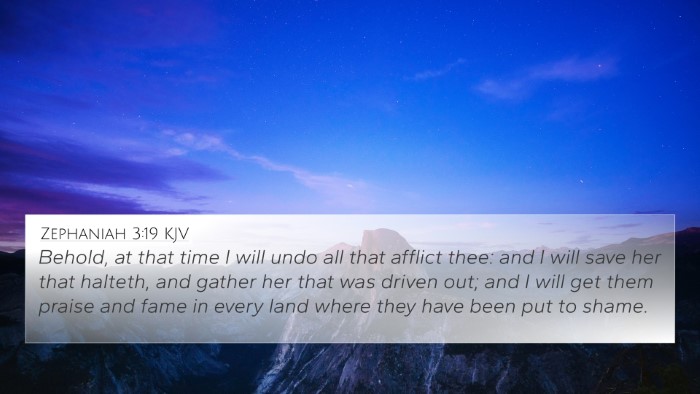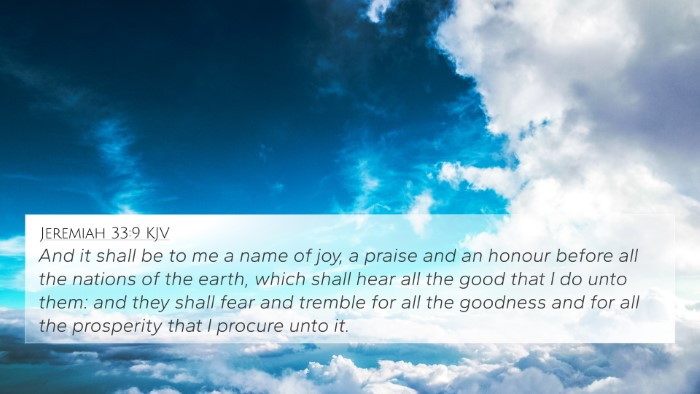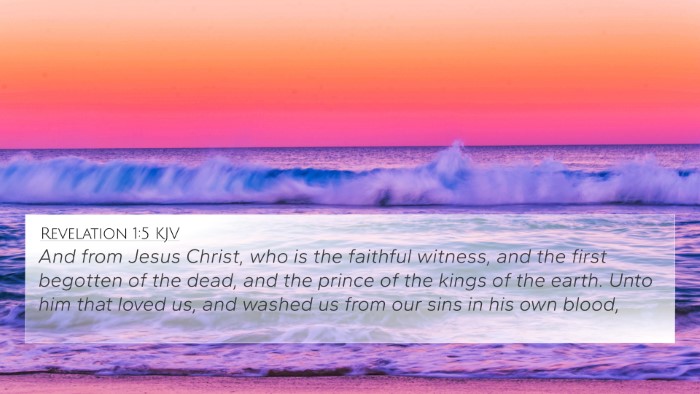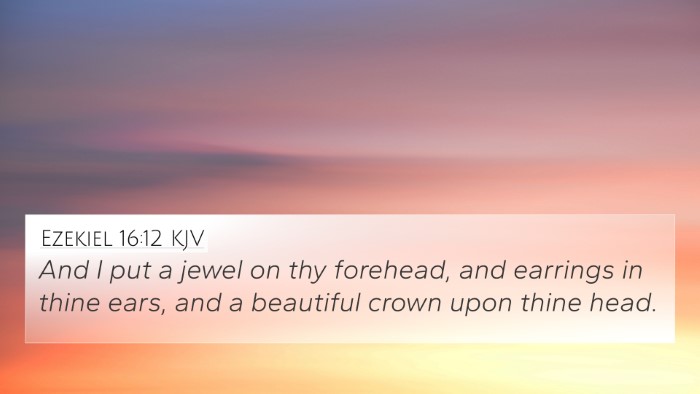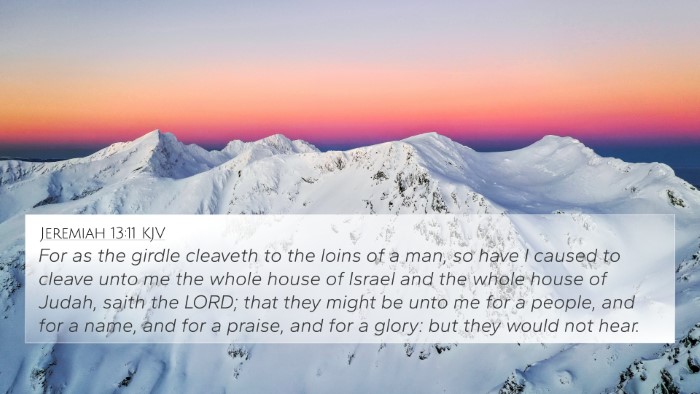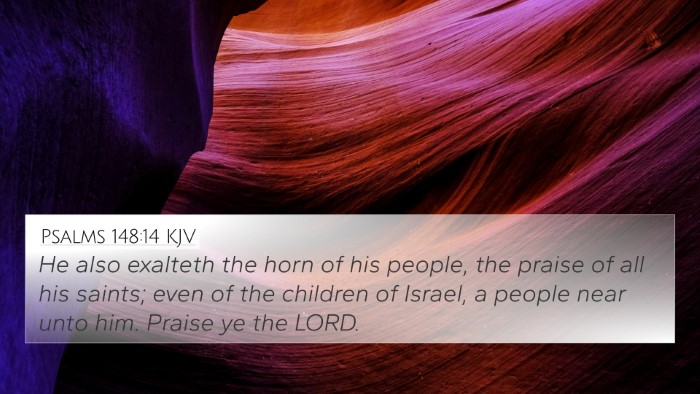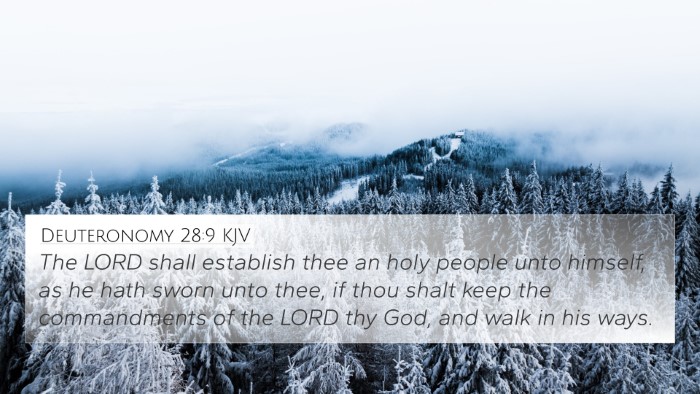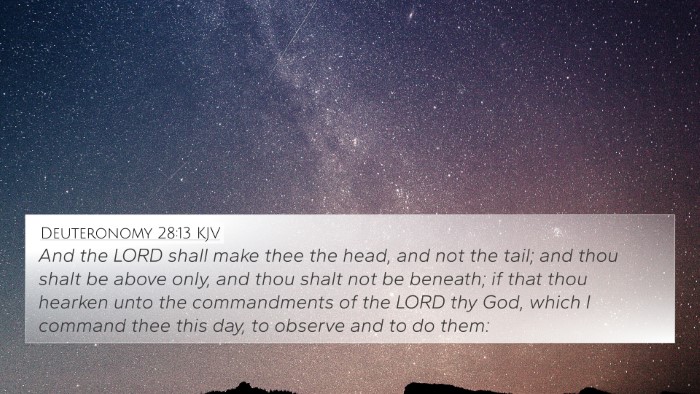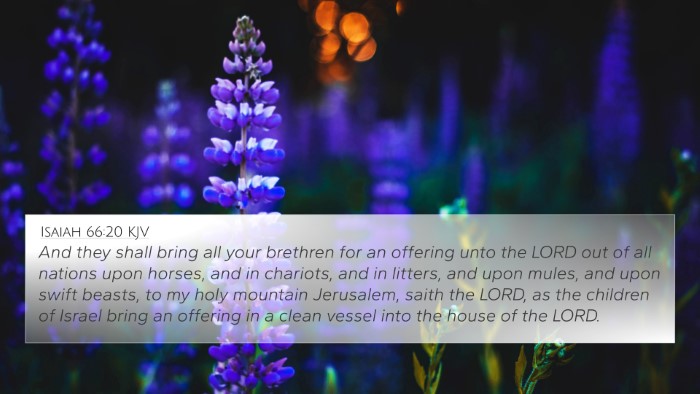Understanding Deuteronomy 26:19
Verse: "And to make thee high above all nations which he hath made, in praise, and in name, and in honour: and that thou mayest be a holy people unto the Lord thy God, as he hath spoken."
Summary of Meaning
Deuteronomy 26:19 encapsulates God's promise to Israel, emphasizing their exalted status among nations if they remain faithful to Him. The verse reflects the covenant relationship between God and His people, highlighting that adherence to divine commands leads to blessings and separation unto holiness.
Commentary Insights
-
Matthew Henry:
Henry emphasizes the significance of obedience in receiving God’s blessings. He interprets the exaltation of Israel as contingent upon their covenant faithfulness, which establishes their identity as a holy nation.
-
Albert Barnes:
Barnes focuses on the implications of being "high above all nations," suggesting that God’s intent is not merely for physical elevation but also spiritual prominence, calling Israelites to live in a manner that reflects His holiness.
-
Adam Clarke:
Clarke delves into the term "holy people," stressing the need for purity and distinction among the nations. He notes that God's covenant is meant to foster a relationship wherein Israel acts as a representative of divine principles on Earth.
Bible Verse Cross-References
To deepen your understanding of Deuteronomy 26:19, consider these cross-references:
- Exodus 19:5-6: Discusses Israel as a treasured possession and a kingdom of priests.
- Isaiah 43:20-21: Highlights God's creation of a people for His praise.
- 1 Peter 2:9: Declares believers as a royal priesthood and a holy nation.
- Deuteronomy 14:2: States that Israel is chosen as a holy people unto the Lord.
- Leviticus 20:26: God commands Israel to be holy because He is holy.
- Jeremiah 31:33: Mentions the new covenant where God will be their God, and they will be His people.
- Romans 12:1: Encourages believers to present their bodies as living sacrifices, holy and acceptable to God.
Connections Between Bible Verses
The connections between these scriptures illustrate a thematic continuity regarding holiness, covenant, and the special status of God's people. This enhances our understanding of God's expectations and promises throughout the Biblical narrative.
How to Use Bible Cross-References
In your study of scriptures, consider employing the following methods:
- Bible Concordance: Utilize tools that provide word and verse references to find related scriptures.
- Bible Cross-Reference Guide: Follow thematic connections that enhance comprehension of doctrinal truths.
- Bible Reference Resources: Engage with classic and modern commentaries to delve deeper into scripture meanings.
Thematic Bible Verse Connections
Exploring thematic connections reveals patterns in God's character and expectations. Here are some themes found in Deuteronomy 26:19:
- Covenantal Relationship: God's commitment to Israel mirrors His bond with Christians today.
- Holiness: The call to be a holy people resonates throughout scripture.
- Divine Favor: Understanding the blessings tied to obedience transcends the Old Testament.
Similarities Between Bible Verses
By examining Deuteronomy 26:19 alongside related verses, we can uncover important theological insights. For example:
- Leviticus 11:44: Affirmation of God's call for holiness.
- Galatians 4:7: Transition from servants to heirs reflects similar themes of belonging and honor.
Conclusion
Deuteronomy 26:19 serves as a profound reminder of the blessings of faithfulness to God. By understanding the overarching narrative and employing tools for cross-referencing, believers can explore the depth and richness of scripture. Engaging in a comparative Bible verse analysis unveils God's steadfast promises and the design for His holy people.

